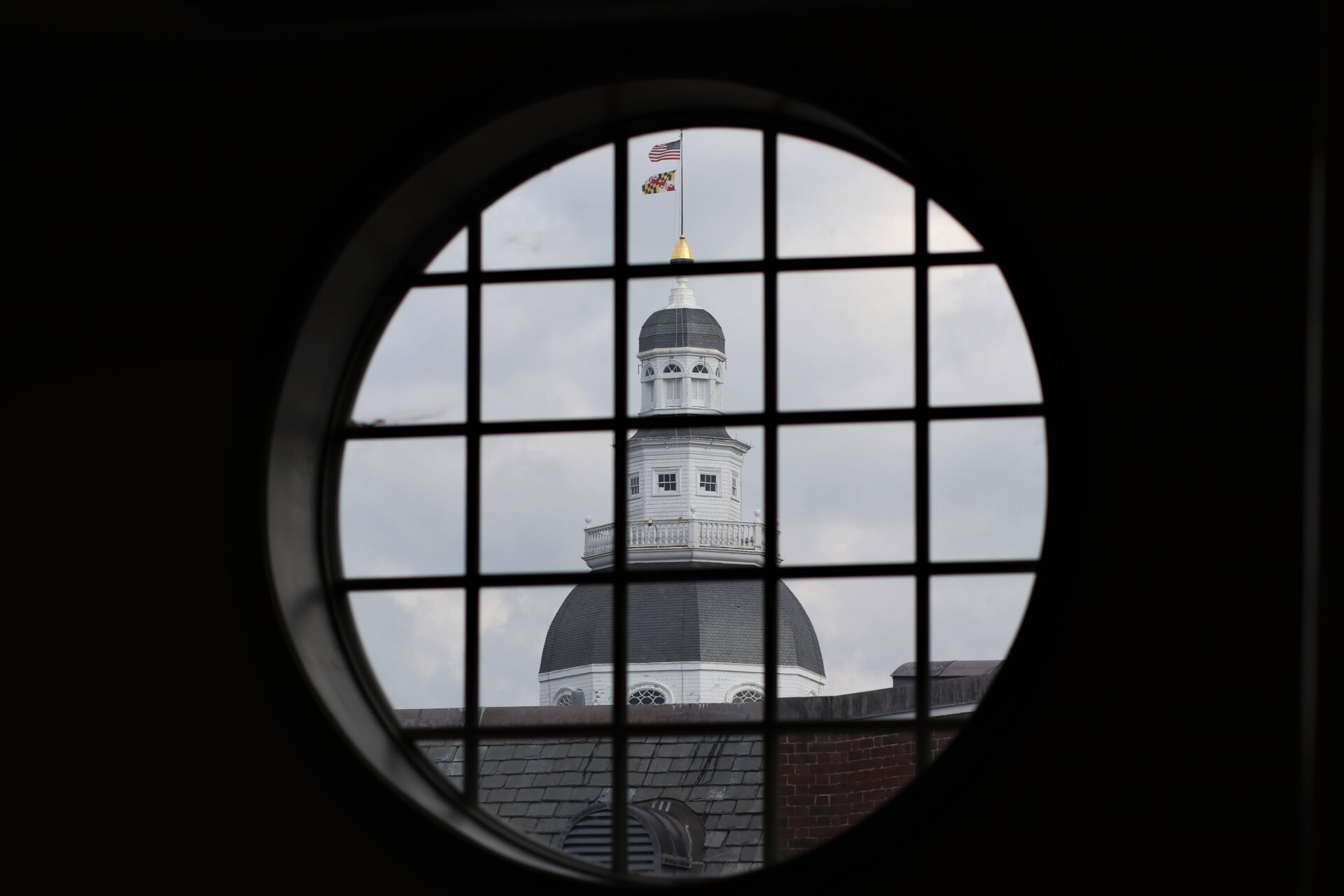With Funding Amendments, Education Reform On Fast Track In House

An education reform bill is on a fast-track to passage in the House of Delegates after key subcommittees voted Tuesday in favor of an amended bill ― which slashes county spending obligations.
The education subcommittees of the House Appropriations and Ways and Means committees approved dozens of amendments to the Blueprint for Maryland’s Future reform bill in a party-line vote.
Their most significant change is an adjustment to proposed education funding formulas that would dramatically reduce the local funding obligations for Baltimore City and Prince George’s County, two jurisdictions that would have been hardest hit by modifications to Maryland’s education funding formula proposed by the Kirwan Commission on Innovation and Excellence in Education. Fifteen other counties also would see a reduction in their obligations as a result of the formula changes. Overall, county education spending in the 2030 fiscal year would increase over current levels by about $859.5 million, compared to an earlier calculation of $1.3 billion.
State funding for education would increase by about $2.96 billion annually by 2030 under the amended formula. That represents a $369 million annual increase over previous estimates.
Republicans on the subcommittees said the price tag is what drove them to vote against the measure.
“It has entirely to do with the price tag. This is fiscally irresponsible,” Appropriations Committee member Del. Jefferson L. Ghrist (R-Upper Shore) said. “We still don’t know how we’re going to pay for it.”
Ghrist was joined by the subcommittees’ other Republicans ― Wayne A. Hartman (R-Lower Shore), April Rose (R-Carroll) and Haven Shoemaker (R-Carroll) ― in voting unfavorable on the amended bill.
Lawmakers have spent much of session grappling with a series of revenue-generating bills that could fund the education reform package by expanding existing taxes, creating new taxes, changing corporate tax laws or repealing tax credit programs.
Hogan and Republicans have opposed efforts to increase taxes, particularly a proposal to expand the state’s sales tax to apply to most services.
“There is no solution that’s going to be palatable to the residents of Maryland. We can’t afford this,” Ghrist said.
“I can’t explain this bill back home. This is not our baby. This is theirs,” he said, referring to Democrats.
House Appropriations Chairwoman Del. Maggie L. McIntosh (D-Baltimore City) told subcommittee members on Tuesday that she was proud of their work on the bill.
“It’s very progressive and fair,” she said of the bill’s changes in an interview.
Senate President Bill Ferguson (D-Baltimore City) said Tuesday that his chamber is focused on “realistic and purposeful revenue options” that would allow Maryland’s economy to remain competitive.
Ferguson said he was pleased so far with the House’s proposed changes to funding formulas.
Spending obligations for Prince George’s County and Baltimore City would decrease primarily through a new “education effort index,” which tries to balance local education spending and local wealth.
As a result, Baltimore and Prince George’s, which had faced annual increases of $340 million and $386 million by 2030, would see their obligations decrease to $170.8 million and $183.1 million, respectively.
Other counties that would see their obligations decrease as a result of the subcommittee amendments are Allegany, Anne Arundel, Baltimore, Caroline, Cecil, Dorchester, Garrett, Kent, Montgomery, Queen Anne’s, Somerset, Talbot, Washington, Wicomico and Worcester.
Republican Gov. Lawrence J. Hogan Jr. posted comments about the funding formula changes on Facebook before Tuesday’s subcommittee meeting.
“For months, Maryland’s jurisdictions have said that they won’t be able to afford the billions of dollars in spending mandated by the Kirwan Commission’s recommendations. Behind closed doors, lawmakers hatched an outrageous $2 billion backroom deal to appease these jurisdictions,” Hogan wrote, adding together several years of the state’s newly increased share of education funding. “Their plan is to force through amendments that require putting state taxpayers on the hook for even more of the Kirwan plan’s massive tax burden.”
McIntosh said Tuesday that she suspects the bill will face partisan opposition in the House chamber.
“With the governor’s posture, I would anticipate it being a partisan vote. The governor has just made it very difficult for people of his own party, who I think want to vote on it,” McIntosh said. “…There are some members who come from counties whose schools have been lobbying for it, whose schools would get helped, whose teachers have been down to testify. But the governor’s position has put them in an awkward position.”
The bill is now expected to move quickly through the chambers, as lawmakers could be keeping their eye on the 90-day legislative calendar with the goal to send the measure to Hogan with enough time to force a same-session veto deliberation.
It will be up for votes in the full House Appropriations and Ways and Means committees on Wednesday and could be passed out of the House chamber by the end of this week.
Ferguson said Tuesday that his chamber has been working on its own amendments to the bill and will likely make changes to the House measure once it crosses over.
In addition to changing the state’s education funding formulas, the Blueprint bill would expand pre-kindergarten programs and career education for high schoolers, increase pay and career opportunities for teachers, and increase state funding for schools with high concentrations of poverty.
Enjoy reading Maryland Matters? Get our morning news roundup in your inbox. Free.
Click here to sign up.




 Creative Commons Attribution
Creative Commons Attribution